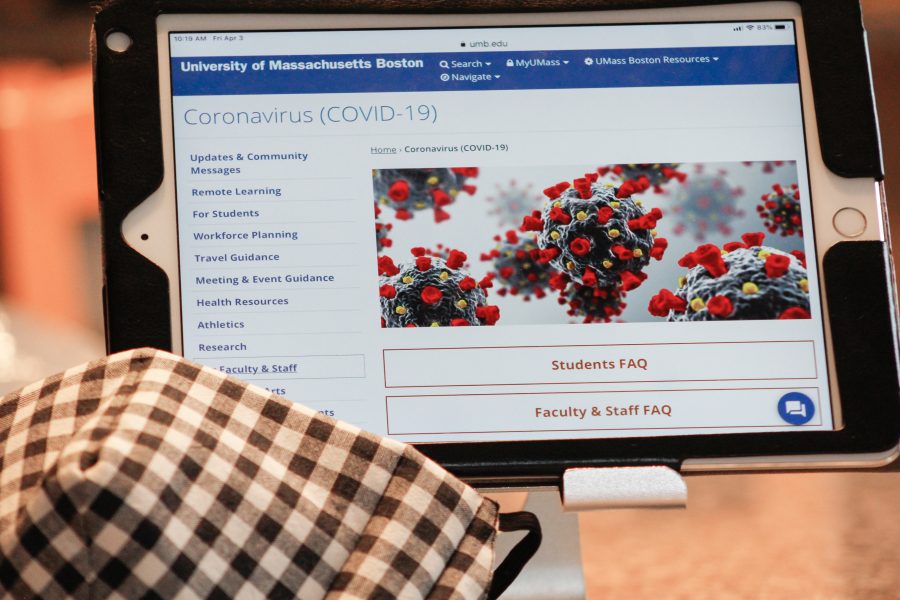Colleges all over the U.S. have found their activities brought to a sudden standstill. The transition to online has hit the social lives of many students, and has especially brought a halt to social events. Some universities, however, have refused to allow the online transition to disrupt this reality, and UMass Boston is one of them.
Our campus has perhaps the most active Arts and Events Council of all the UMass systems, with SAEC putting on virtual events such as a trivia night where students may compete for Amazon gift cards, or a virtual escape room event that is tailored through Zoom. Events that we have become used to seeing on campus like the “Wheel of Sex” and the group fitness classes are still occurring online. Compare this to other universities, such as Boston University, whose website advertising virtual events has most social events canceled, and virtual events limited to students chatting with their advisors. Or even look at Northeastern University, with most of their events being either “postponed” or “canceled” and online events being limited to webinars. Virtual events for students seem to be all but nonexistent. So it is promising to see that UMass Boston is actively fighting against this norm, and is encouraging student interaction despite the constraints.
The effort to include students isn’t just purely aimed at the current student body; this Saturday, the university is hosting its virtual Welcome Day for students, an event for admitted students entering in the Fall 2020 semester. Compare this to other universities, who are mostly interacting with the admitted students through virtual chats with admissions officers.
While all of this is to be applauded, UMass Boston should also be recognized for their interaction with the student body regarding the online transition. Recently, the Undergraduate Student Government passed a legislation petitioning the university for aspects such as partial refunds for all students who paid to take credits on campus, adjusting this cost to be more in tune with the price of online classes, parking pass refunds, and dorm housing refunds. And the university has been receptive to listening to these petitions. Surveys that are being emailed to students are urging them to respond to let the administration know if the online transition has been seamless or not. The constant communication of both Chancellor Newman and Vice Chancellor DiSabitino has been reassuring. Truly, while that one week in March that everything seemed to spiral out of control may have been alarming, the university has collectively receded from sudden surprises and has been deserving of applause.
Even the commencement committee has been promising. Earlier this week, the committee sent out an email asking for “input from [the] student body, especially graduating students,” and plans to “invit[e] representatives from the undergraduate and graduate student governments to participate in the planning process.” The committee aims to avoid an in-person gathering for public health concerns, but what other university can claim that commencement will now be an event that is filled with various student inputs in order to ensure that the best solution is reached?
It is inevitable of course, that us as the student body are the harshest critics of the university, but we must also recognize when the university is excelling. While the transition to online interfaces may have been initially hazy, UMass Boston has proven that it can still maintain the feeling of community that we all hold dear, and it is performing brilliantly so.

